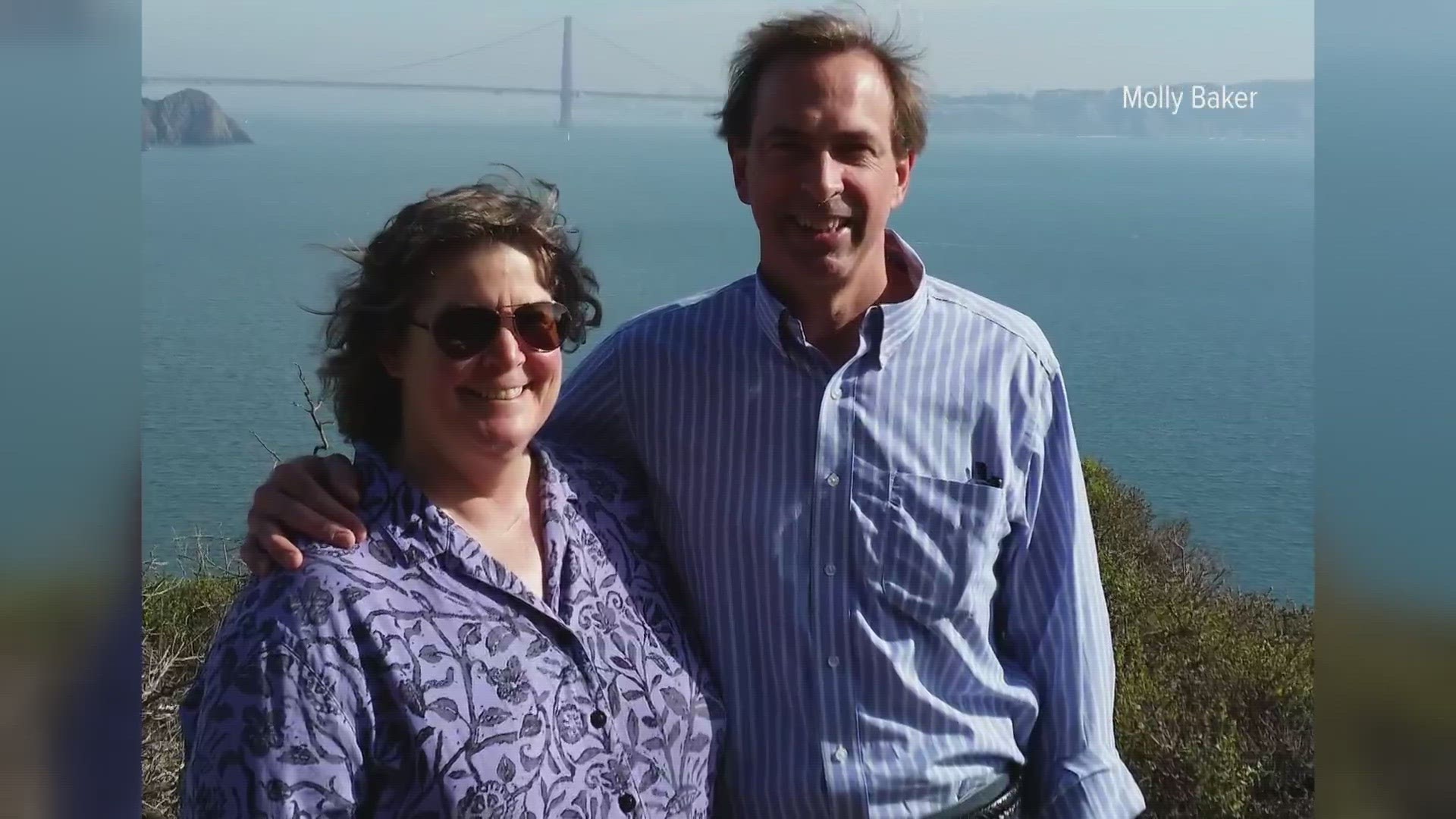DAVIS, Calif. — More than 50 million Americans have an ongoing sleep disorder. Sleep apnea, a condition where you stop breathing, is the most common.
Davis resident Molly Baker is among that group. She has Multiple Sclerosis which causes major fatigue. That led to her first sleep study in 2015. The technicians quickly determined she had severe sleep apnea and gave her a C-Pap machine to help her breathe.
"81 events an hour, and 30 is bad, so anything above that is really bad," Baker said. "I decided to be a model patient, put the machine on, and not complain and fell right back asleep and had one of the best nights of sleep ever."
She hasn't gone a night without it since.
"Sleep apnea can be life-threatening, it can be lifestyle-threatening especially if it's not treated," Baker said.
More than 80% of patients in sleep centers have apnea but Sutter Sleep Disorder Center Medical Director Dr. Lydia Wytrzes said anything that disturbs sleep can potentially be diagnosed at a center. That includes abnormal movements or REM disorders.
If you go in for an overnight study you arrive in the evening, get hooked up to the equipment, continue your wind-down routine and wake up early the next morning. The data from the study is immediately sent to your provider and you could quickly have a diagnosis and treatment plan. For some sleeping away from home can seem nearly impossible so there are in-home options for those who believe they have sleep apnea.
"An at-home test is usually much simpler and more specific. 'Do I snore or not? Am I not breathing or not? Is my oxygen dropping or not?' Those are the essentials," Wytrzes said.
If you don't think you have apnea but still deal with sleep problems, Wytrzes says if you get seven to eight hours of sleep but still wake up tired it's time to look into the problem. If you're having trouble falling asleep or staying asleep it's something you can talk over with your doctor.
Watch more on ABC10



















